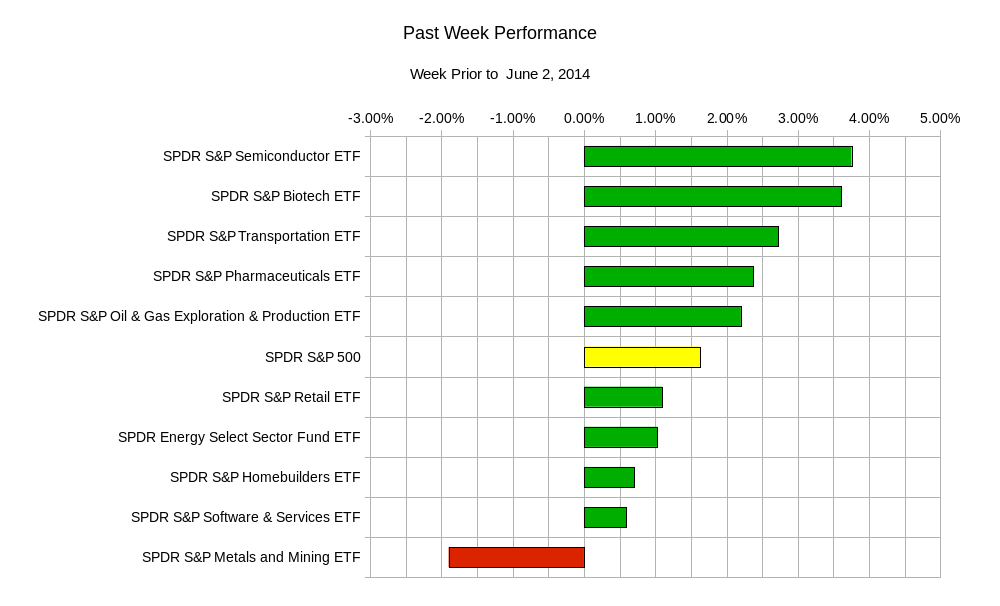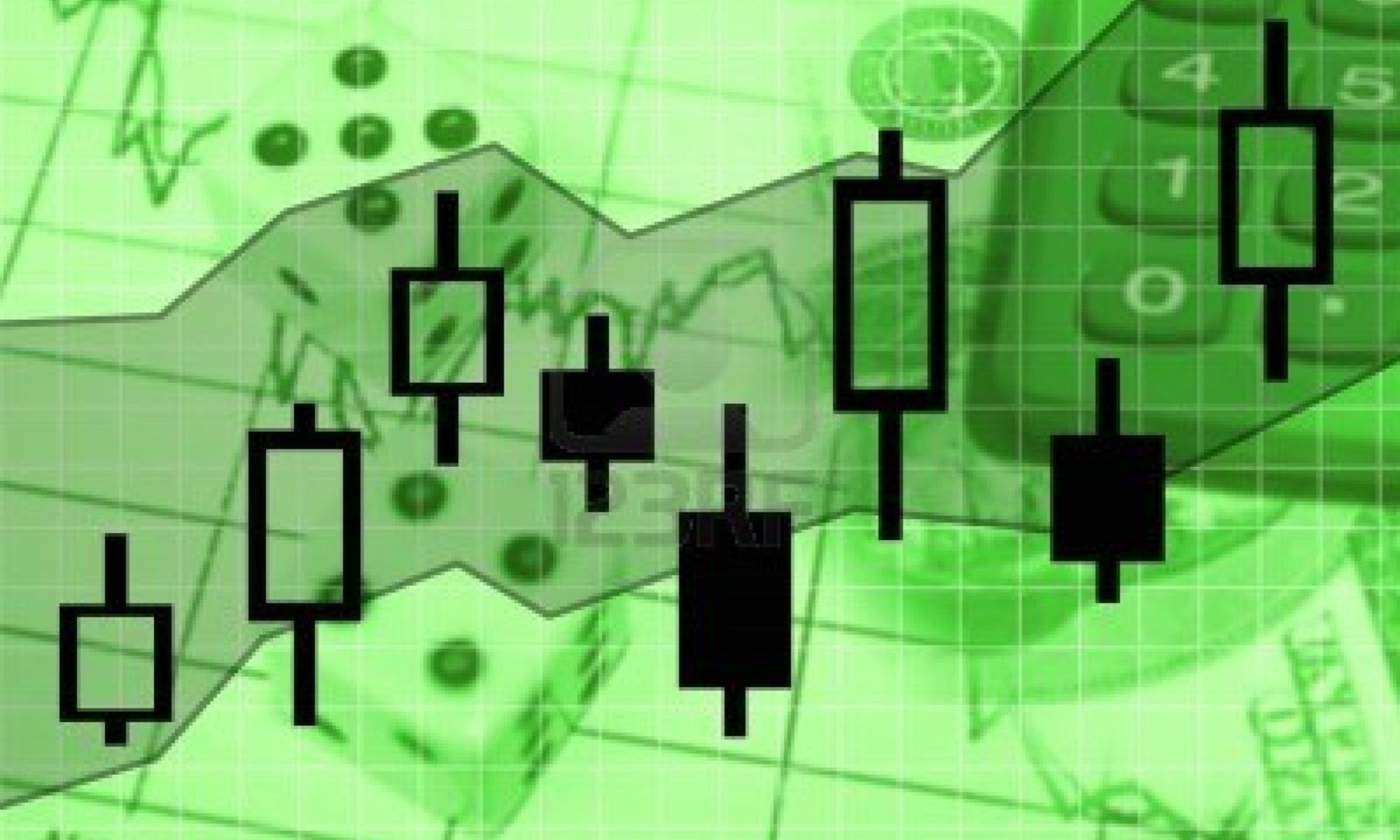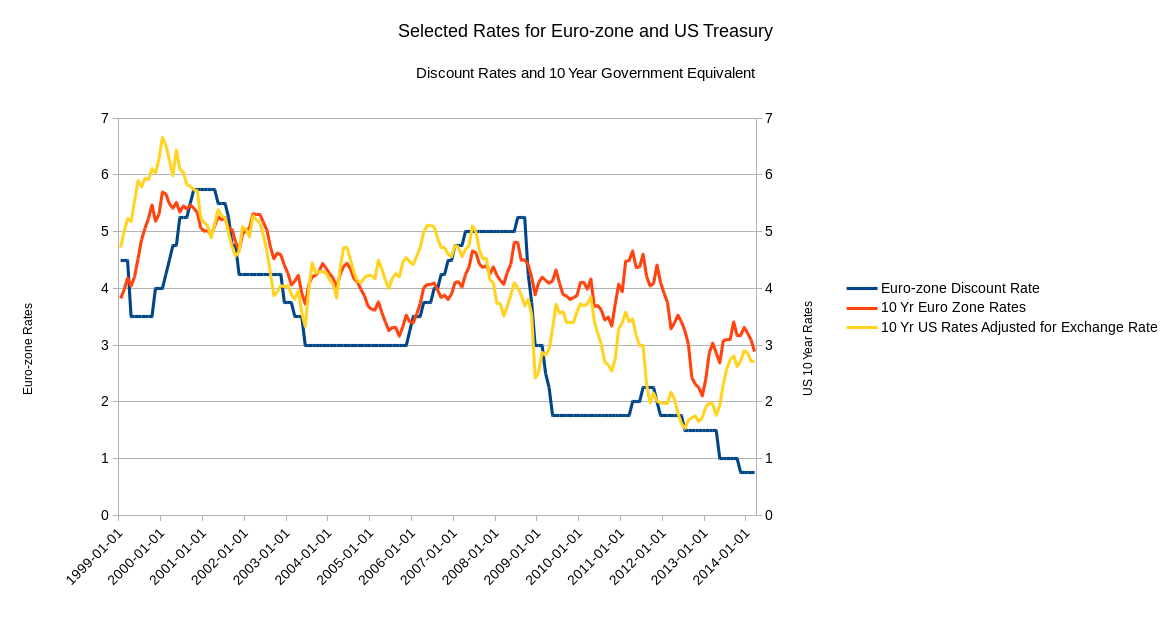After a shortened trading week with very little volume, has the stage been set for traders to come roaring back to work?
Last week’s trading volume in the equity market was low as expected. The markets traded in tight ranges during the week with a slight upward bias. This helped propel the markets to new all time highs once again. The market closed higher on the week despite a disappointing US GDP first quarter estimate revision. The week also witnessed a bit of a move into riskier assets as sectors such as bio-tech saw some buying. This was the type of week where any long equity position easily profited.  However despite the dull week, last Tuesday helped set up this week as one that will have a wide audience. European Central Bank (ECB) President Mario Draghi hinted that the ECB is prepared to act more aggressively to boost the European economy. The policy statement and meeting minutes will be released this Thursday. Many have interpreted Draghi’s comments as a signal that the ECB will cut its deposit rates. The idea is that banks would no longer horde cash deposits because of the implicit penalty of tiny, near zero, deposit rates. The hope is that this will push banks to lend more, hopefully to small businesses, in order to jump start the European economy. Traders, especially those with positions in interest rate and foreign exchange products will be watching the ECB’s decision and policy closely.
However despite the dull week, last Tuesday helped set up this week as one that will have a wide audience. European Central Bank (ECB) President Mario Draghi hinted that the ECB is prepared to act more aggressively to boost the European economy. The policy statement and meeting minutes will be released this Thursday. Many have interpreted Draghi’s comments as a signal that the ECB will cut its deposit rates. The idea is that banks would no longer horde cash deposits because of the implicit penalty of tiny, near zero, deposit rates. The hope is that this will push banks to lend more, hopefully to small businesses, in order to jump start the European economy. Traders, especially those with positions in interest rate and foreign exchange products will be watching the ECB’s decision and policy closely.
In addition, the US will report its monthly jobs report at the end of the week. Last month’s report saw some signs of life as the report showed an increase of 288,000 jobs. The current expectation is for 213,000 new jobs this month. More important than the recent uptick in raw job numbers will be wage growth. The most common factor mentioned in opinions on the US economy is the lack of wage growth. An uptick in wage growth may bring the US Federal Open Market Committee closer to raising interest rates. The recent rally in US treasuries would surely suffer a bit if the perception of higher rates begins to gain credence.
The rest of the weeks economic calendar is as follows:
Monday – Euro-zone Purchasing Managers Index (PMI) and US ISM Manufacturing Index; Tuesday – Euro-zone Consumer Price Index (CPI) and EUR-zone Unemployment Rate; Wednesday – Euro-zone GDP, Euro-zone Producer Price Index (PPI), and US International Trade Balance; Thursday – G7 Meeting, Bank of England Interest Rate Decision, ECB Interest Rate Decision, and US Initial Weekly Jobless Clames; Friday – US Monthly Employment Report.
Certainly there should be more liquidity this week as there are a number of data points and announcements that traders will be interested in. Given that, this week may see the SPY, S&P 500 ETF, end up in between 189.10 and 196.60; TLT, the 20Yr+ US Treasury ETF may end in between 103.20 and 105.00; The FXE, Euro Currency ETF; may end up in between 129.70 and 133.00.
Without much imagination, the surprise bond rally may have some room to continue. A quick glance at how the rates have followed European discount rates shows how. Remember that bond prices are inversely related to interest rates. This means that as rates decrease, the value of bond portfolios increase.
Many fixed income traders have made significant bets against bond prices and have paid a heavy price. Since the reversal of the recent global economic crisis in 2008 has been ongoing, many have speculated that the extraordinary measures taken by global central banks will have to be reversed. This expectation has come with the thought that inflationary pressures as a result of the recovery and the measures taken will send bond prices plummeting. The opposite has happened with a few exceptions here and there. Be aware that such a myopic view of a market is very naive. The equivalent occurs when you hear the media speak of a looming correction in equity markets. It is usually best to avoid one-sided views. If you cannot adhere to a trading game plan because of your belief that something will definitely happen then it is best to wait on the sidelines.
Earthquakes are catastrophic. If every day you predicted that one will occur tomorrow, eventually you will be right at some point. However this does not mean you are great at predicting earthquakes. Be leery of the situations where opinions are seemingly stacked on one side. Constantly counting on swift large market movements in one direction seldom pays off.
Good luck and trade rationally.


